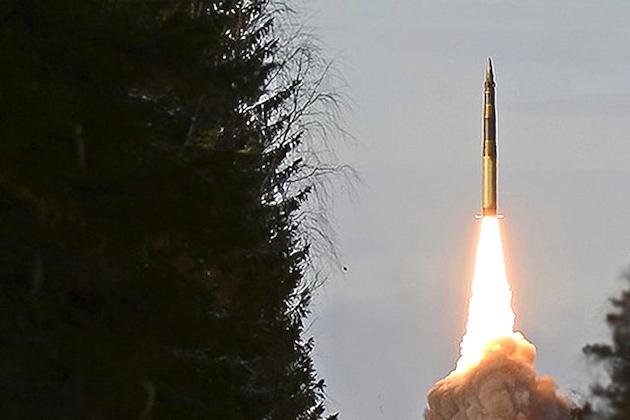

SEOUL, South Korea: North Korea has announced that it tested a new type of intercontinental ballistic missile, marking an end to a self-imposed moratorium on long-range testing in place since 2017 and attracting international condemnation.
North Korean state media said leader Kim Jong Un directly guided the test of the Hwasong-17, a “new type” of intercontinental ballistic missile that is the largest developed by the country.
The missile flew for 681 miles to a maximum altitude of 3,905 miles and struck a target in the sea, the North Koreans added.
According to state media, Kim stressed that North Korea was preparing for long confrontation with the U.S., and its strategic force was ready to counter any military attempt against it.
The test was the first full launch of North Korea’s largest missiles since 2017, and is a major step in Pyongyang’s development of weapons that can deliver nuclear warheads anywhere in the U.S.
North Korea’s resumption of major weapons tests poses a new problem for U.S. President Joe Biden, as well as presents a challenge to South Korea’s incoming conservative administration.
While meeting in a Group of Seven summit in Brussels in a show of unity against the Kremlin, Biden and Japanese Prime Minister Fumio Kishida affirmed the need for diplomacy and agreed to jointly hold Pyongyang “accountable,” said a White House official.
White House press secretary Jen Psaki noted, “This launch is a brazen violation of multiple UN Security Council resolutions and needlessly raises tensions and risks destabilizing the security situation in the region.”
Since 2017, North Korea had put its ICBM and nuclear tests on hold, but it has defended the weapons as necessary for self-defense.
South Korea’s outgoing President Moon Jae-in said the launch is “a breach of the moratorium on ICBM launches that Chairman Kim Jong Un, himself, promised to the international community,” while Kishida called it an “unacceptable act of violence.”
South Korea’s foreign ministry said U.S. Secretary of State Antony Blinken and South Korean Foreign Minister Chung Eui-yong called for a decisive response and agreed that additional measures by the UN Security Council were needed.
Amidst a flurry of diplomacy in 2018, Kim declared a moratorium on testing ICBMs and nuclear weapons, but later said such tests could resume due to stalled denuclearization negotiations.
24World Media does not take any responsibility of the information you see on this page. The content this page contains is from independent third-party content provider. If you have any concerns regarding the content, please free to write us here: contact@24worldmedia.com

Common Mistakes When Using Athletic Field Tarps

High-Performance Diesel Truck Upgrades You Should Consider

Warehouse Optimization Tips To Improve Performance

Fire Hazards in Daily Life: The Most Common Ignition Sources

Yellowstone’s Wolves: A Debate Over Their Role in the Park’s Ecosystem

Earth Day 2024: A Look at 3 Places Adapting Quickly to Fight Climate Change

Millions of Girls in Africa Will Miss HPV Shots After Merck Production Problem

This Lava Tube in Saudi Arabia Has Been a Human Refuge for 7,000 Years

Four Wild Ways to Save the Koala (That Just Might Work)

National Academy Asks Court to Strip Sackler Name From Endowment

Ways Industrial Copper Helps Energy Production

The Ins and Out of Industrial Conveyor Belts